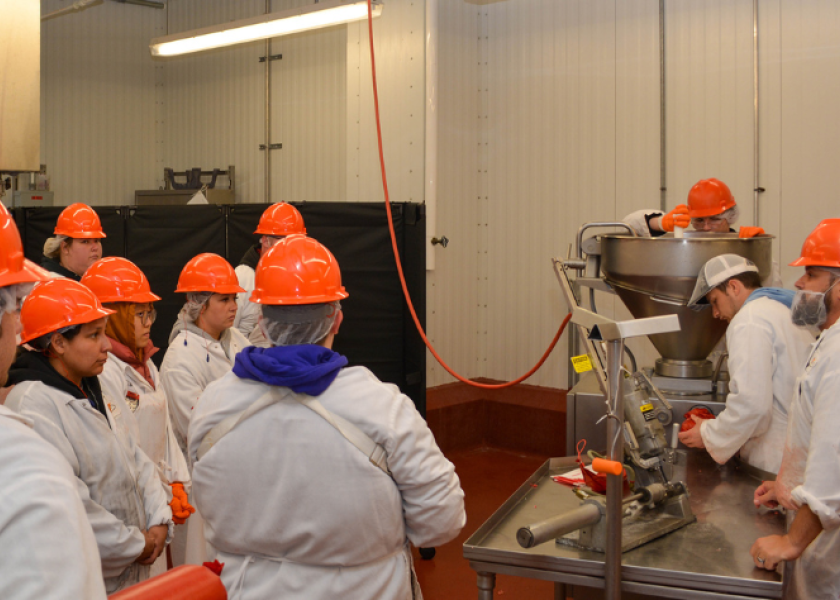Skilled Meat Processing Workforce Demand Leads to Hands-On Mastery Program

Oklahoma State University's Robert M. Kerr Food and Agricultural Products Center (FAPC) recently hosted the inaugural Meat Mastery Program in collaboration with Osage Nation. This hands-on program aimed to provide participants with comprehensive knowledge on multi-species meat harvesting and value-added meat product processing, says a recent OSU release.
There are several factors contributing to the growing workforce demand in food and agricultural products processing, says Ravi Jadeja, associate professor and principal project investigator, including decentralization, the need for local meats, food safety and food security. To address the critical shortage of skilled workers in the meat industry, FAPC developed this hands-on training program as a way to directly engage participants in the meat industry workforce.
In the release, Jadeja emphasized the project's goal of leveraging OSU's existing relationships with two-year colleges and meat industry partners to prepare the next generation of professionals in the meat industry. Over the next three years, a cohort of 60 students will undergo hands-on meat processing training in federally inspected meat processing facilities located at OSU and the Osage Nation. The project received funding through a USDA-NIFA workforce training grant.
“FAPC focused on a solution-oriented approach to successfully develop and execute a summer training program,” Jadeja says in the release. “Developing a hands-on training program comes with challenges, such as the purchasing of livestock and supplies. It’s also critical to not interfere with the day-to-day operations of commercial meat processing facilities involved in training participants.”
FAPC's meat processing plant, equipped with the necessary training capabilities, facilitated student involvement throughout the entire process, while participants in the Meat Mastery Program worked closely with current student workers, assisting with activities like harvest, fabrication, packaging and labeling.
Roy Escoubas, FAPC director, expressed satisfaction with the successful outcome of the collaborative efforts.
“FAPC is pleased to be a part of such an important training that delivers technical information to the promising next generation of meat processors,” Escoubas adds in the release. “The future of the industry is dependent on elevated and value-added educational opportunities.”
Joel Jackson, meat pilot plant manager, highlighted the diverse group of participants from across the state who had the opportunity to interact with experienced professionals, gaining insights into their backgrounds and industry affiliations.
“We had an excellent group that was eager to participate, and we are looking forward to next year's Meat Mastery Program,” says Jackson, in the release. “I look forward to seeing these young people go out and begin their career in the meat industry.”
Participants received grant-funded housing at the OSU-Stillwater campus and a $2,000 stipend sourced from grants upon completion of the program. The summer training program equipped participants with formal training and certificates in Hazard Analysis and Critical Control Points, Good Manufacturing Practices and Sanitation.
Notable guests at the program included Blayne Arthur, Oklahoma Secretary of Agriculture from the Oklahoma Department of Agriculture, Food, and Forestry; Scott Yates, director of food safety, ODAFF; Erica Hering, president of Ralph's Packing Co.; and Stephen Spurgeon, regional manager of Walton's Inc. Faculty members from OSU's Department of Animal and Food Sciences, including Gretchen Mafi, Morgan Pfeiffer, Ranjith Ramanathan, and Patricia Rayas-Duarte, served as co-project investigators. Pawnee Nation College, Murray State College, Connors State College, and the Oklahoma Texas Meat Processors Association were additional collaborators.







